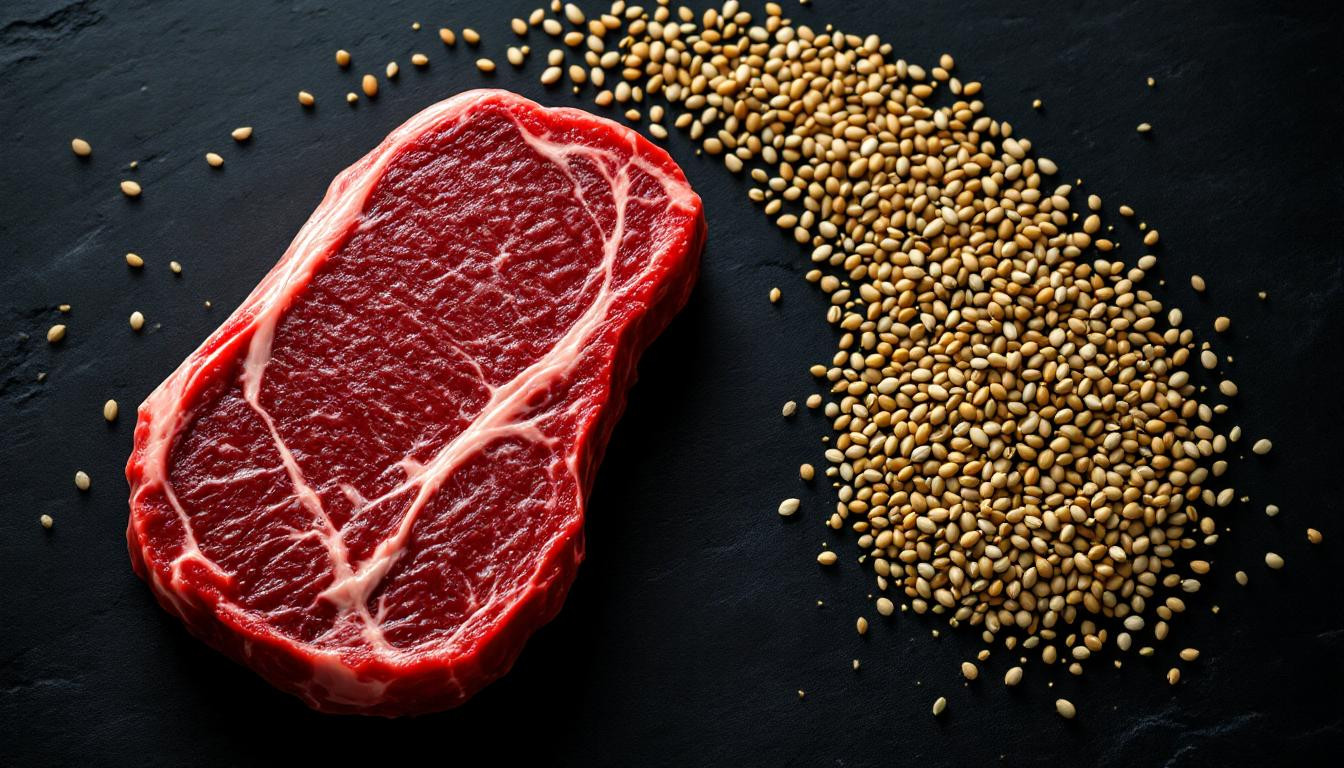Protein powerhouses are at the heart of every balanced diet, but you don’t need to rely on meat to meet your daily requirements. Plant-based protein sources offer impressive nutritional profiles that can easily match or even surpass their animal counterparts. Let’s explore three exceptional plant-based proteins and discover how just 100 grams of each can revolutionize your meals and nutrition.
The mighty hemp seed: nature’s complete protein
With a whopping 30 grams of protein per 100g, hemp seeds lead our list as protein champions. Unlike many plant sources, hemp seeds provide all nine essential amino acids your body needs but cannot produce on its own.
“Hemp seeds represent one of the few plant proteins that can be considered nutritionally complete,” explains Dr. Maya Rodriguez, plant-based nutrition specialist. “Their protein is highly digestible, making them particularly efficient for muscle recovery and maintenance.”
These tiny powerhouses also deliver an impressive array of nutrients:
- Heart-healthy omega-3 and omega-6 fatty acids
- Magnesium for muscle and nerve function
- Iron for oxygen transport
- Phosphorus for bone health
Peanuts: the humble legume with protein punch
Don’t underestimate the common peanut. Packing 25.8 grams of protein per 100g, these legumes (not actually nuts!) are protein powerhouses that have sustained cultures worldwide for centuries. Like a silent nutritional backup singer finally getting recognition, peanuts deserve center stage in your protein rotation.
Peanuts shine with their versatility—from simple snacking to creamy butter to savory sauces. They also contain resveratrol, the same heart-healthy compound found in red wine.
“Peanuts offer significant protein along with beneficial monounsaturated fats that support cardiovascular health,” notes nutrition researcher Dr. James Chen. “They’re particularly valuable for those transitioning to more plant-focused eating patterns.”
Pumpkin seeds: small wonders with mighty benefits
These flat, oval seeds might seem unassuming, but don’t be fooled—pumpkin seeds deliver an impressive 24.4 grams of protein per 100g. Like forest floor gems hiding in plain sight, these seeds contain a treasure trove of nutrients beyond just protein.
Particularly notable is their exceptional mineral content:
- Zinc for immune support and wound healing
- Magnesium for over 300 enzymatic reactions
- Iron to prevent deficiency-related fatigue
Combining plant proteins for optimal nutrition
While hemp seeds offer complete protein, combining different plant sources creates nutritional synergy. For instance, partnering peanuts with whole grains enhances their amino acid profile, similar to how strategic planting supports backyard chickens.
Incorporating these proteins into your daily meals
These protein sources blend beautifully into various dishes. Sprinkle hemp and pumpkin seeds over salads or yogurt, similar to how foxgloves attract pollinators to gardens. Add peanuts to stir-fries or blend into sauces.
Beyond protein: additional health benefits
These foods deliver more than just protein. Hemp seeds offer omega-3s that support the same skin benefits observed when supplementing with vitamin D. Pumpkin seeds provide protective compounds similar to how certain purple flowers naturally reduce garden pests.
Creating fragrant, protein-rich meals
Just as specific shrubs create fragrance zones in gardens, combining these protein sources with herbs and spices creates aromatic, satisfying meals that nourish body and soul.
Are you getting enough plant protein?
With these three powerhouses in your pantry, meeting protein needs becomes effortless. Their concentrated nutrition proves that plants can provide everything your body requires—no meat needed. Which of these protein sources will you incorporate into your next meal?
